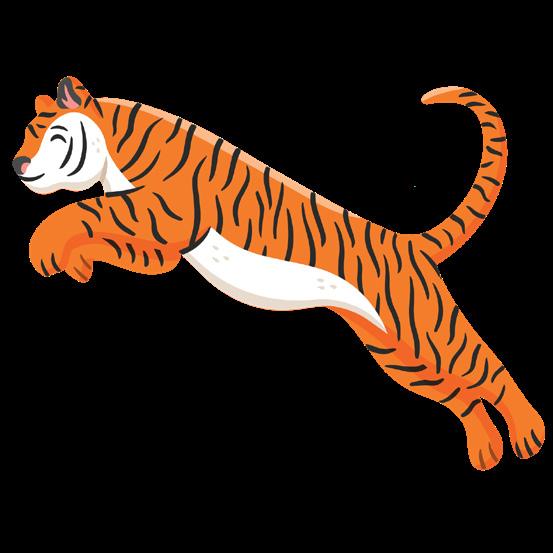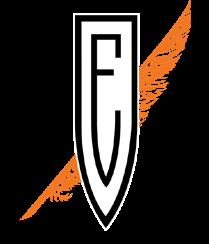

Literacy
GRADES K-2
The foundation of our literacy curriculum is a systematic and explicit approach to teaching our young students how to read and begin expressing themselves as writers. Using the latest research on the science of reading and writing, students learn to “crack the code” through an Orton-Gillingham-based phonics program, decodable readers, and a multisensory approach to language acquisition.
As students build decoding and fluency skills, they also engage in early writing—learning to construct words, sentences, and short stories. Writing at these grade levels emphasizes letter formation, sound-symbol correspondence, sentence structure, and the beginnings of writing for purpose and audience.
Our innovative approach to literacy combines a strong research-based foundation with the joy of both reading and writing. With extensive classroom libraries, daily writing opportunities, and a focus on developing comprehension and expression, our students grow into confident, capable communicators.
GRADES 3-5
Literacy instruction in Grades 3–5 supports students as they grow into independent readers and confident, capable writers. Reading continues to be tailored to each child’s level, with increasing text complexity to build stamina, deepen comprehension, and spark thoughtful discussion.
Writing expands significantly in these grades, guided by research-based practices from the science of writing. Students learn to organize ideas clearly, respond to texts with precision, and strengthen grammar and structure through sentence-level strategies. Grammar is made meaningful through Patterns of Power, which invites students to notice and imitate powerful sentences from real texts. Morphology instruction deepens vocabulary and spelling by exploring roots, prefixes, and suffixes—unlocking meaning and flexibility in both reading and writing.
Vocabulary, grammar, and mechanics are embedded within daily literacy experiences. With regular opportunities to write, revise, and reflect, students build strong voices, fluent expression, and critical thinking as writers.
SAMPLE OF LITERATURE: Grade 3: Soft Rain; The One and Only Ivan; Charlie and the Chocolate Factory; Grade 4: Walls Within Walls; Charlotte’s Web; The Liberation of Gabriel King; Grade 5: A Wish in the Dark; Tuck Everlasting; Inside Out and Back Again
SIGNATURE EXPERIENCE: PATCHWORK
A long-standing Ensworth tradition is hosting significant authors in children’s and young adult literature. Visiting authors create magic in the eyes of young Ensworth readers by reading aloud from their work, discussing their experiences in writing and illustration, and showing students the creative process to inspire them to create their own stories and appreciate the power of reading, writing, illustration, and imagination.
Math
Math classes stress the successful development of mathematical thinkers. The curriculum, Singapore Math, uses a focused progression integrating concepts, skills, processes, and hands-on learning, all required in the problem-solving process. Lessons guide students toward developing understanding using a concrete-pictorial-abstract approach. Students develop knowledge in the areas of numbers, functions, operations, geometry & measurement, data & statistics.
KINDERGARTEN
• Compare & arrange numbers within 20.
• Articulate number bonds & form stories.
• Make & complete patterns using shapes.
• Interpret data in a picture graph & chart.
GRADE 1
• Add & Subtract within 10, 20, 100.
• Count to find the total value of coins.
• Understand part-whole word problems.
• Compare length & height in proper terms.
GRADE 2
• Count by ones, tens, hundreds up to 1200.
• Recognize & sort odd and even numbers.
• Compare object lengths in metric units.
• Translate info from a table to a bar graph.
Science
GRADE 3
• Master basic multiplication and division
• Build fraction understanding as parts of a whole
• Strengthen addition/subtraction across 100 and 1,000
• Learn area, perimeter, & multi-step problems
GRADE 4
• Deepen multi-digit multiplication/division
• Expand fraction work and introduce decimals
• Study geometry: angles, symmetry, coordinate plane
• Read and interpret graphs and charts
GRADE 5
• Master multi-digit and fraction operations
• Advance decimal skills and place value
• Explore volume and 3D geometry
• Begin algebraic thinking and complex data work
The science curriculum strives to inculcate students with the skills needed to be scientists using exposure to a broad range of science topics through hands-on, experiential learning. Students begin to make observations, develop meaningful questions, think critically, record data, and communicate conclusions effectively. By the end of Grade 5, students learn to apply the scientific method across a range of topics. Sample learning topics include:
Weather
Balancing & Weighing
Habitats & Ecosystems
Forces & Motions
Electricity
Animal Adaptations
Solar Systems
Light & Sound
Animal Adaptations
Human Machine
Energy
Earth Systems
Solids, Liquids, & Gasses
Engineering K 2 1 3 4 5
Weather & Climate
World Language
Technology: Robotics/Coding
Simple Machines
Animal Biodiversity
Land & Water
Solar System
Matter & Energy in Organisms
Water & Environment
The primary focus of World Language instruction is the development and nurture of essential linguistic skills needed for meaningful communication in the target language. All students take Chinese and Spanish classes to learn vocabulary and grammar through aural/oral activities, to acquire language specific phonetics and syntax, to develop listening and speaking skills for authentic conversational speech patterns, and to learn about the history and culture of global Chinese and Spanish speaking communities.

Visual & Performing Arts
Lower School students take visual arts and music during all grades. Students are introduced to a variety of media and processes for making visual art and finding success through creativity. Students examine influential artists toward learning a global view of art, and connect their artwork with interdisciplinary projects. Students explore fundamental music concepts, singing and listening skills, and opportunities to play instruments, culminating with an opportunity to showcase their work in a performance each semester.
Social Studies
THEME—MYSELF AND MY COMMUNITY
Topics: understanding of community; becoming a productive member of a community; homes, neighborhoods, spaces in all varieties; Signature experience: Partnership with Habitat for Humanity.
THEME—HOW MY COMMUNITY WORKS TOGETHER
Topics: occupations and tasks at school; jobs and community helpers in Nashville; jazz history (see interdisciplinary learning); Signature experience: Pet Show and animal food drive for local shelter.
THEME—PIONEERING CHANGE THROUGH COURAGE
Topics: individuals showing bravery to better their community and inspire change; Oregon Trail; jazz history (see interdisciplinary learning); Signature experience: Pioneer Day.
THEME—BUILDING TENNESSEE
Topics: geography, history, events, government, economy, key people of Tennessee; role of Tennessee in US History events such as the Civil War and the Civil Rights movement.
THEME—BUILDING THE UNITED STATES
Topics: geography, culture, economy of regions, Native American cultures, contributions of famous Americans, transition from colonies to independent nation; Signature experience: Biography Fair.
THEME—GROWTH & CHANGE IN THE UNITED STATES
Topics: branches of government, survey of U.S. history and challenges of a growing nation, Lewis & Clark and westward expansion; Skills highlights: analyzing sources, research, writing, presentations.
Life Class
Life Class provides students with the tools for positive and productive social and emotional growth. Students learn a variety of topics, that are age- and developmentally-appropriate, such as: speaking and listening, respect, gratitude, truthfulness, personal responsibility, self-awareness, making good choices, personal safety, developing friendships, accepting others and understanding differences, learning from mistakes, growth mindset, and being a helpful member of learning and social communities and groups.
Technology & Innovation

Students use technology as an extension and reflection of their core curriculum. Technology is used to teach concepts and skills that allow for exploration and hands-on learning, reinforce students’ curiosity and creativity, encourage collaboration and communication, enhance organization and productivity, and promote problem-solving. Main concepts across the grades include productivity, multimedia communication, programming, and creative expression.
Physical Education
AFFECTIVE SKILLS Exhibit positive attitude in all activities and cooperate with peers of all ability levels. K 2 1 3 4 5
Students participate in PE everyday, and learn and actively practice the development of the following: PSYCHOMOTOR SKILLS Effective motor skills and movement patterns (ie- running, jumping, throwing, etc.). COGNITIVE SKILLS Apply strategies and tactics to perform game-based physical activities & simulations. PARTICIPATION SKILLS Willingly push beyond one’s comfort zone and maintain healthy habits.
Interdisciplinary Learning
Students develop awareness and understanding connecting a theme and digging deeper into an area of learning across the disciplines of music, literature, culture, history, language, art, and technology, culminating in a public performance and presentation to families in the spring.
SIGNATURE PROJECTS:
HOME

In Kindergarten, students engage in art, music, library, world language, and technology learning as they understand more about where they live and their roles at home, in the classroom, at school and in larger communities. This experience centers around their Habitat for Humanity service learning project, and culminates with home-related songs and themes at their spring music concert.
ROOTS AND STREAMS OF JAZZ
In Grades 1 and 2, students explore jazz music, impactful artists, and the power of inspiring positive influence in conjunction with the National Museum of African American Music and Nashville’s music community. Students experience workshops, field trips, and teacher-designed collaborative lessons (literature, technology, music, art) highlighting the role that jazz music played in history and in the community.
MOSAIC — INTERDISCIPLINARY COLLABORATION AND CELEBRATION OF LEARNING
In Grade 3, students develop an understanding of Chinese and Hispanic cultures and traditions through an interdisciplinary lens connecting learning experiences in music, art, technology, and literature. Students examine multicultural fairy tales for understanding emotional connections across cultures. Students create stop-motion animation video’s artwork, Chinese and Spanish language narration, and underscore using traditional music pieces.
FROM HUMBLE ROOTS TO SEQUINED SUITS
In Grade 4, a longstanding language arts project exploring songwriting and the pioneers of country western music now includes interdisciplinary collaboration across music, art, library, and physical education classes. This unit revolves extensively around the songwriting process as each student designs an original song, and the curriculum connections across disciplines deepen students’ understanding of country western music history, traditions, and Nashville’s critical role.
AMERICAN STORIES AND STEAM FAIR
In Grade 5, students experience American history and geography through many lenses. They explore the foundations of our nation, the experiences and perspectives that have contributed to the American tapestry, and how American history is reflected in literature and the arts. This interdisciplinary unit incorporates field trips and explorations into community resources. The students present and share their knowledge and work product with the community during an evening Grade 5 Arts Night. For the STEAM Fair, students design and conduct their own experiments and produce measurable results on a topic of their choice across the areas of Science, Technology, Engineering, Arts, and Math. Students engage in extensive work in the areas of research, writing, prototyping and testing, problem-solving, and communicating findings at the culminating STEAM Fair Open House.
Service Learning
All students engage in grade-level service projects that incorporate learning and that enhance their understanding and compassion for society with many different needs.
SAMPLE OF EXPERIENCES & PARTNERSHIPS: Kindergarten Coin Collection for Habitat for Humanity; Grade 1 Pet Show & food and supplies gathering for the Humane Association; Grade 4 partnership with Harris Hillman Elementary specials needs students

Ensworth is a kindergarten through twelfth grade, coeducational independent school. The School promotes academic excellence and inspires students to be intellectually curious, to use their talents to the fullest, to be people of integrity, and to be contributors to society.
